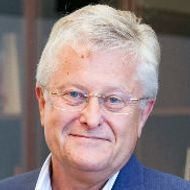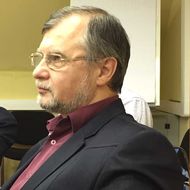- A
- A
- A
- ABC
- ABC
- ABC
- А
- А
- А
- А
- А
- HSE University
- Faculties
- Faculty of Social Sciences
- School of Political Science
- News
- Pluralism by Default: the sources of democracy in hard places
3 Krivokolenny Pereulok, Moscow, 103070.
Phones:
8 (495) 772-95-90 *22833,
8 (495) 772-95-90 *22448
Fax: 8 (495) 772-95-90 *12556
Email: politfac@hse.ru
Washington: Free Russia, 2018.
Petrov N., Hale H. E., Lipman M.
Russian Politics. 2019. Vol. 4. No. 2. P. 168-195.
Arbatli E.
In bk.: Oxford Research Encyclopedia of Politics (Living Edition). Oxford University Press. P. 1-20.
Sorokina A., Maximenkova M., Kasamara V.
Political Science. PS. Высшая школа экономики, 2019. No. 71.

Pluralism by Default: the sources of democracy in hard places
On April 9, Lucan Way (University of Toronto, Canada) made a report 'Pluralism by Default: the sources of democracy in hard places' at the HSE’s XX April International Conference within the section 'Political processes' (moderator: Andrei Melville).
The end of the Cold War saw the emergence of democratic or nearly democratic regimes in countries with weak democratic prerequisites – endemic poverty, illiteracy, or a high degree of ethnolinguistic and religious difference. Albania and Macedonia in Eastern Europe; Kyrgyzstan and Moldova in the former Soviet Union; Benin, Mali, and Senegal in Africa witnessed the rise and persistence of competitive authoritarian and democratic institutions familiar to Western observers: regular and competitive elections, powerful legislatures, and free media. Indeed, the share of democracies among low and lower-middle income countries nearly doubled from the mid-1980s to the 2000s.
Lucan Way argue that pluralism in "new democracies" is often grounded less in democratic leadership or emerging civil society and more in the failure of authoritarianism. Democratic competition frequently emerges because autocrats lack the state capacity to steal elections, impose censorship, or repress opposition. In fact, the same institutional failures that facilitate political competition may also thwart the development of stable democracy.
Lucan Way is an associate professor of political science at the University of Toronto. Way’s research focuses on democratization and authoritarianism in the former Soviet Union and the developing world. His most recent book, Pluralism by Default: Weak Autocrats and the Rise of Competitive Politics (Johns Hopkins, 2015), examines the sources political competition in the former Soviet Union. His book, Competitive Authoritarianism: Hybrid Regimes after the Cold War (with Steven Levitsky), was published in 2010 by Cambridge University Press. Way’s book and articles on competitive authoritarianism have been cited thousands of times and helped stimulate new and wide-ranging research into the dynamics of hybrid democratic-authoritarian rule.
- About
- About
- Key Figures & Facts
- Sustainability at HSE University
- Faculties & Departments
- International Partnerships
- Faculty & Staff
- HSE Buildings
- HSE University for Persons with Disabilities
- Public Enquiries
- Studies
- Admissions
- Programme Catalogue
- Undergraduate
- Graduate
- Exchange Programmes
- Summer Schools
- Semester in Moscow
- Business Internship
- © HSE University 1993–2025 Contacts Copyright Privacy Policy Site Map
- Edit

